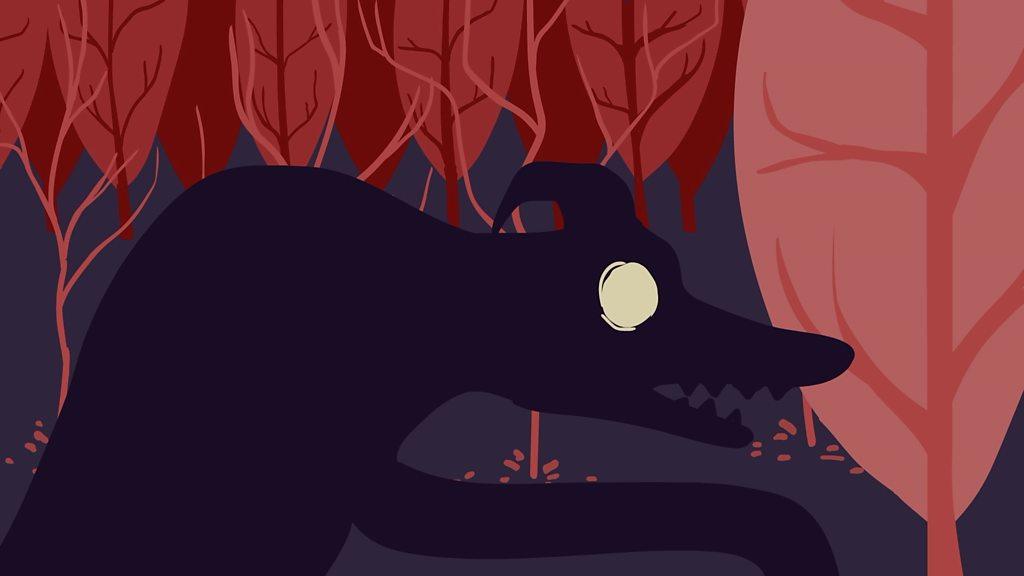This Country star says folklore’s thriving on social media
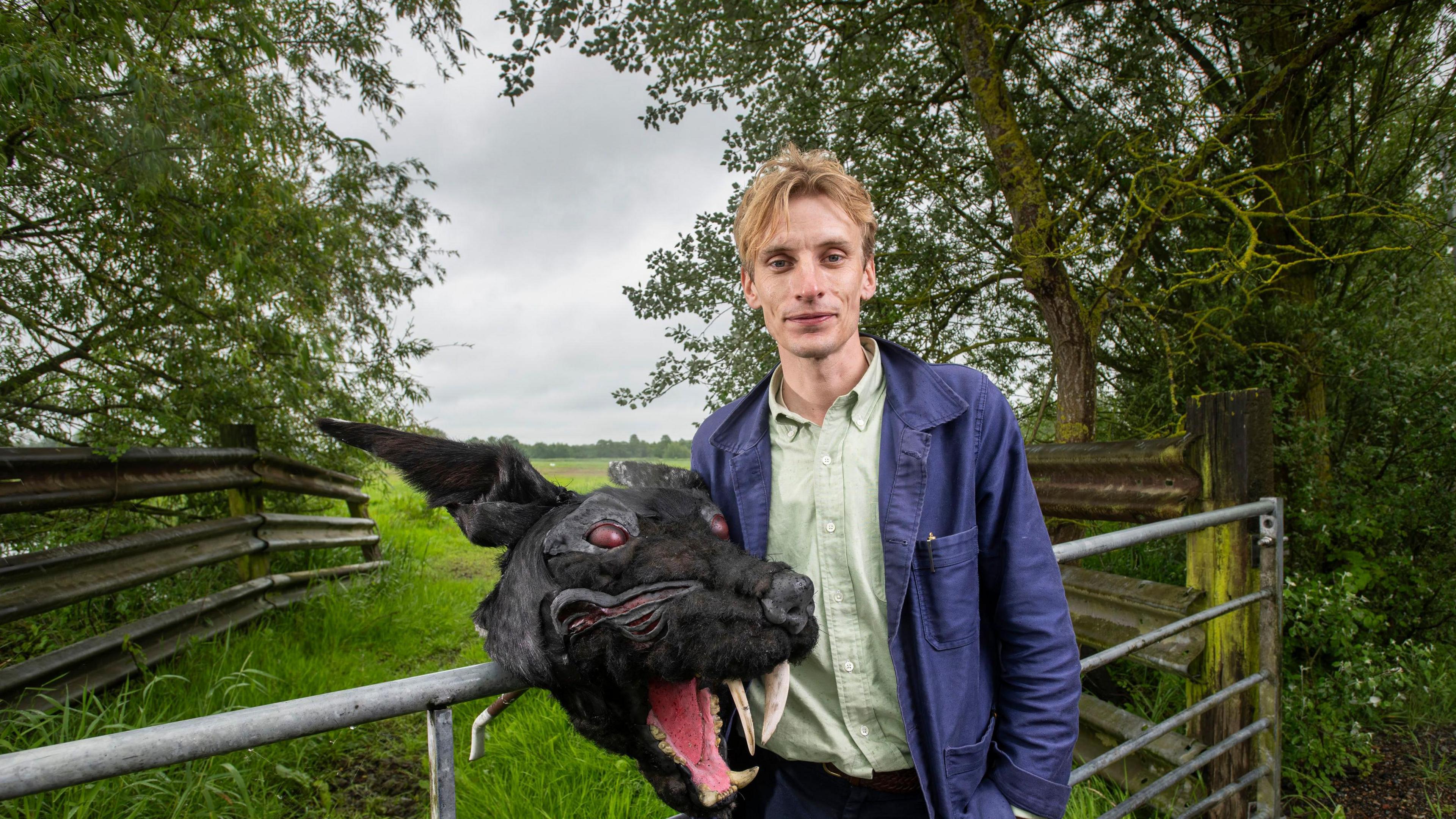
Charlie Cooper - pictured with a costume head of Black Shuck, a ghostly dog said to roam East Anglia - says folklore can help people feel connected to their environment
- Published
Robin Hood in Sherwood Forest. Mermaids swimming off the coast of Cornwall. The ghostly dog Black Shuck roaming East Anglia.
Every place has its own folklore - but now with the help of social media, more and more of it is being discussed online, enthusiasts tell the BBC.
"There's definitely a resurgence among young people having an interest in folklore," says BAFTA-winning actor and writer Charlie Cooper, who is the host of a new BBC series exploring myths across the UK.
"It's very much alive and thriving on social media," the star adds.
Cooper has always been surrounded by folklore and local traditions, after growing up in rural Gloucestershire, famed for its ghost stories and annual cheese rolling competition that sees people plummet down the steep Cooper's Hill.
But it wasn't until he started making This Country, the critically-acclaimed BBC series he co-wrote and starred in with his sister Daisy May Cooper, that he realised how "bizarre and wonderful" folk culture is.
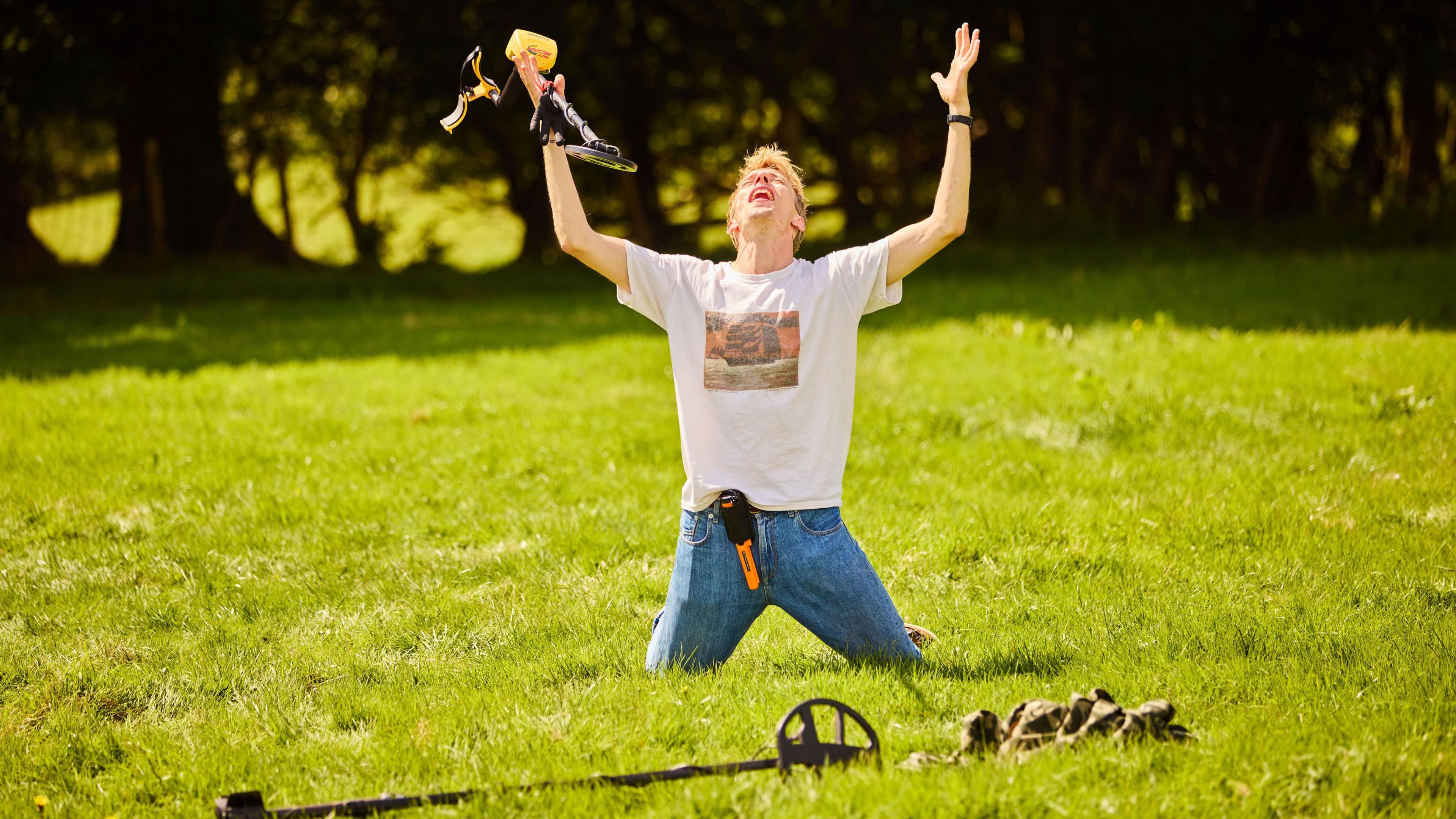
Cooper took part in a search for King Arthur's treasure with a group he found on social media
As Cooper explains there are now "amazing online communities" that are engaging with folk traditions, either finding events or sharing their own content via dedicated Facebook and Instagram groups - there is even #folklorethursday on X, formerly known as Twitter.
"These events are becoming more popular because people are seeing it online and they're wanting to be a part of it," Cooper says.
On TikTok, people share videos retelling stories, myths and urban legends on everything from Scottish fairies, Welsh giants and Irish Dullahan, a headless horseback rider.
"I think we live in a time now that we've probably created more of a safe space for people to talk about paranormal things or weird stuff that's happened to them," Cooper says.
In his search to learn about folklore in the BBC series Charlie Cooper's Myth Country, the star went to community events to talk about Black Shuck sightings, joined a metal detector group looking for ancient relics and even made his own crop circle.
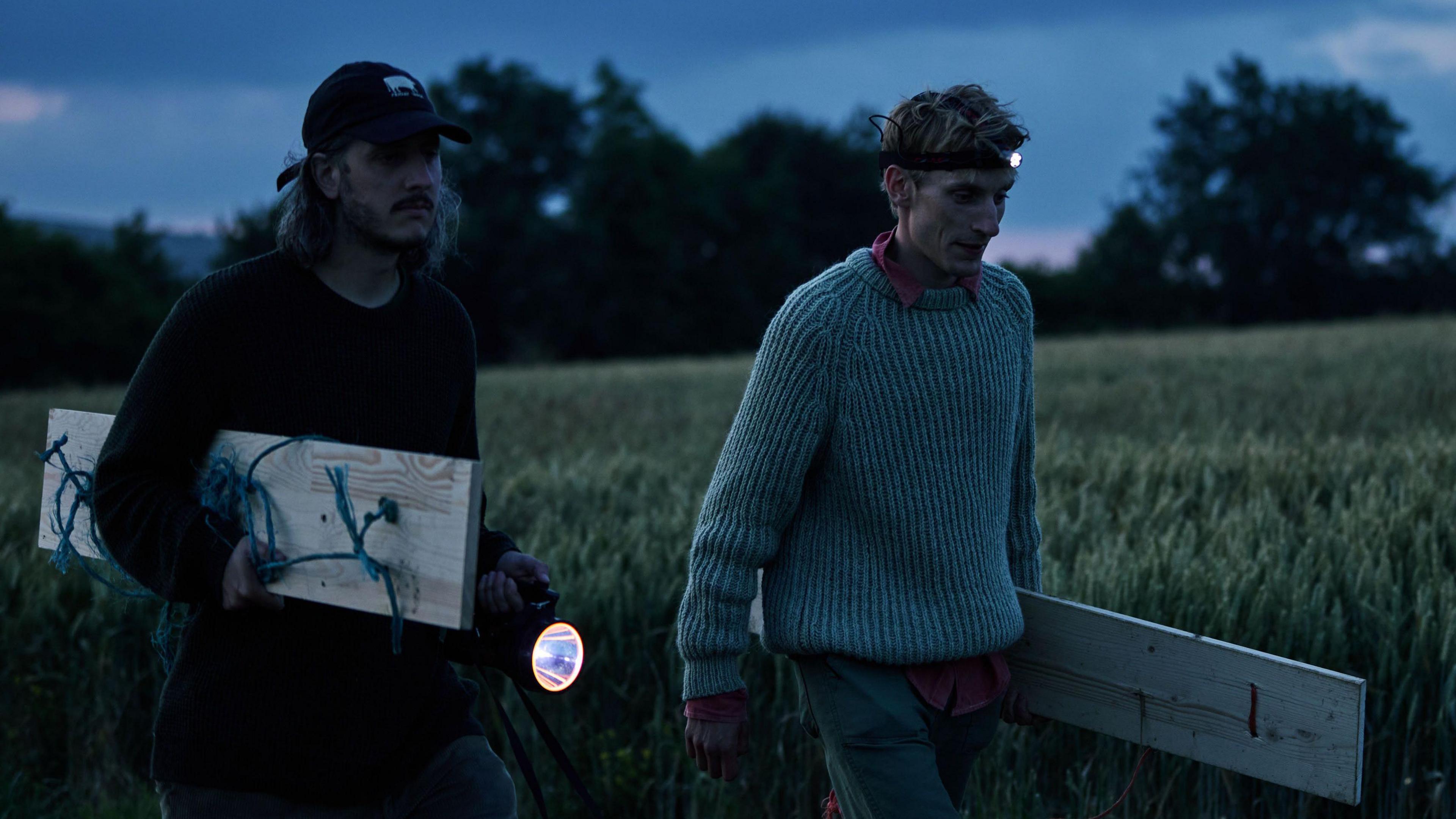
While exploring folklore around the UK, Cooper made his own crop circle with his friend Scott Johnson
Cooper explains that sharing stories about folklore can help bring communities together and can give people "a sense of belonging to the landscape".
Matthew Cheeseman, a professor in writing and folklore at the University of Derby, suggests young people may be getting more interested in the academic study of the topic because they are "attracted to a sense of rootedness" it provides.
Siân Powell is a TikTok creator with a master's degree in Celtic studies. More than 90,000 people follow her online content all about Cornish and Welsh folklore, with typical videos introducing her audience to a mythological figure by sharing stories and illustrations about them.
She says she saw a "huge surge" in people talking about folklore on the platform during the pandemic, adding that folk tales can "re-enchant the landscape around you and [help you] fall back in love with an area".
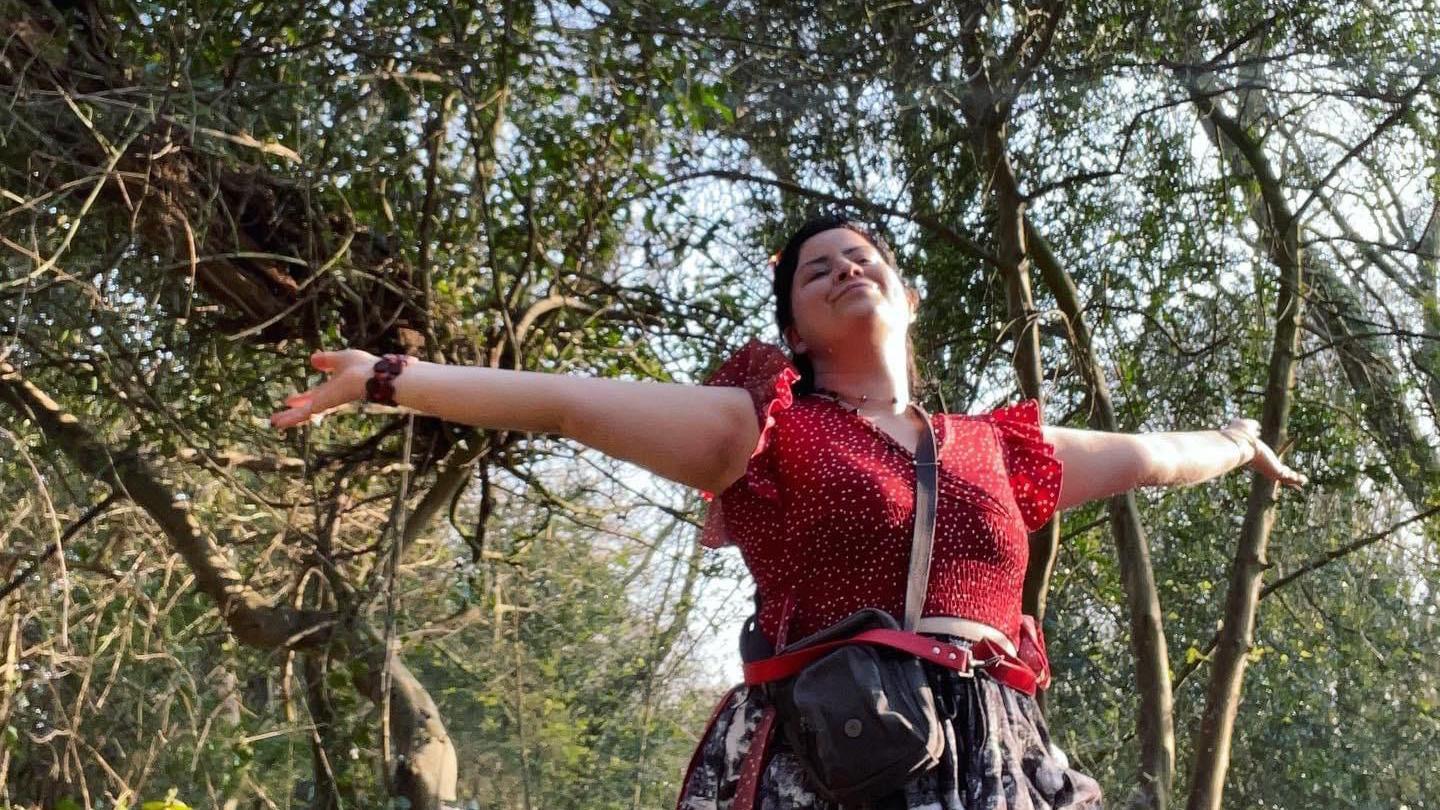
Ms Powell says people turned to folklore in the pandemic (...and not just Taylor Swift's album)
"Folklore is always in a state of flux," Cooper says, "it's always changing."
Cooper argues that while we might think of folk traditions like Morris dancing as "trivial" or belonging in the past, people are continuing to modernise it - like the all-female Boss Morris dancers, from Stroud, Gloucestershire, who make their own costumes and share their dance routines on TikTok.
"It's about taking something that's rooted in tradition, but making it their own, and bringing it up to speed a little bit, which is so lovely," Cooper adds.
Professor Cheeseman says folklore is not necessarily "old and ancient" but rather about the process of sharing stories with each other. He adds that nowadays "we're talking to each other over a screen. Now, we tell scary stories of the things that we might glimpse in images on the internet."
Ms Powell adds that urban legends widely shared on the internet have "become their own form of folklore," adding: "I don't think something has to be supposedly 1,000-years-old to have any value."
Related topics
You can watch Charlie Cooper's Myth Country on BBC iPlayer
- Attribution
Related stories
- Published30 June 2024
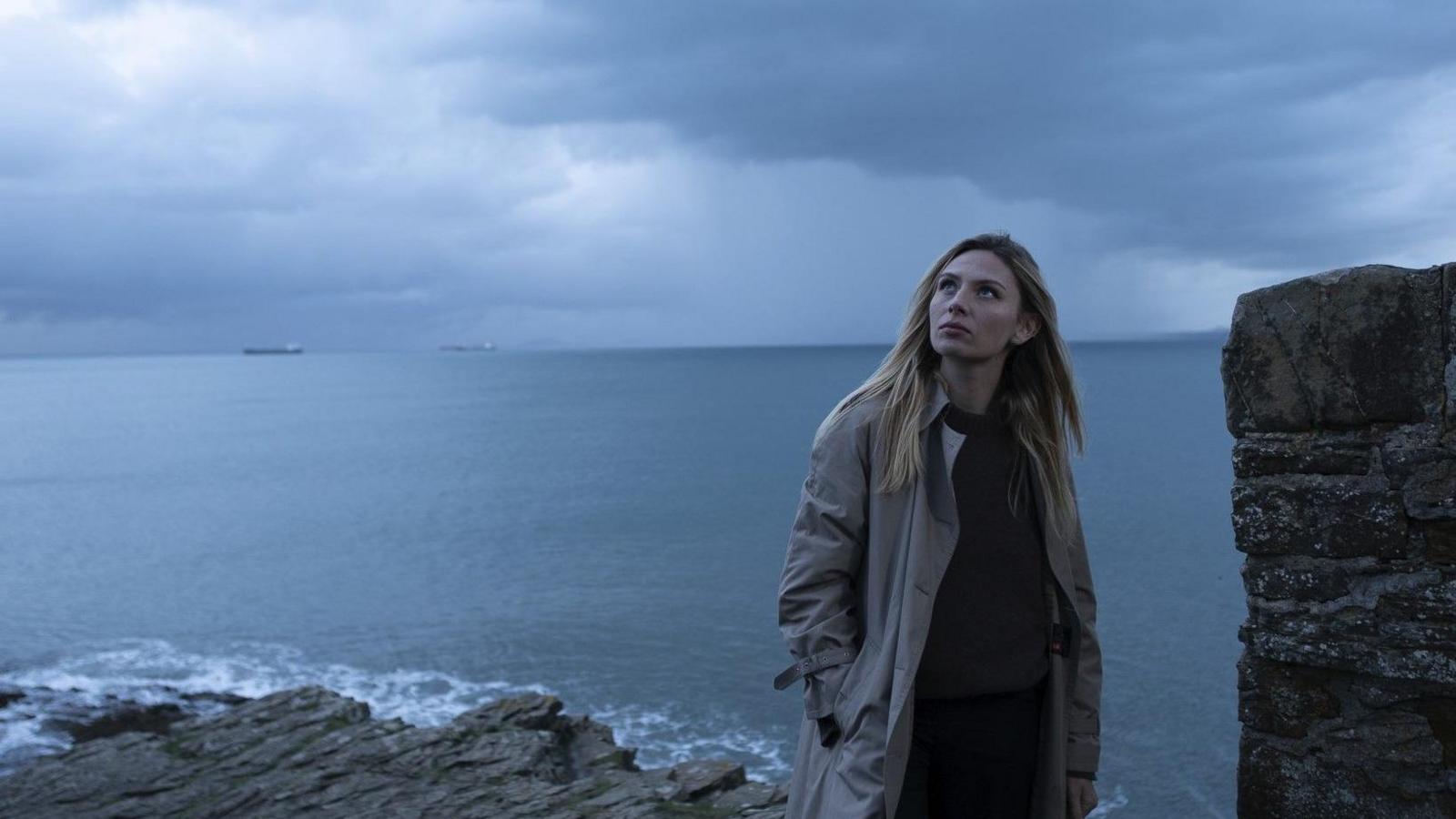
- Published18 February 2024
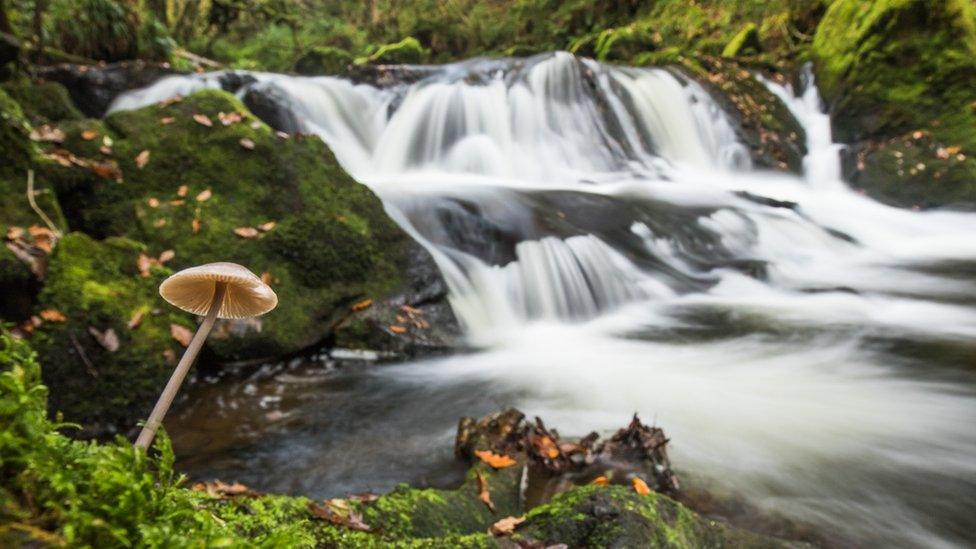
- Published31 October 2017
